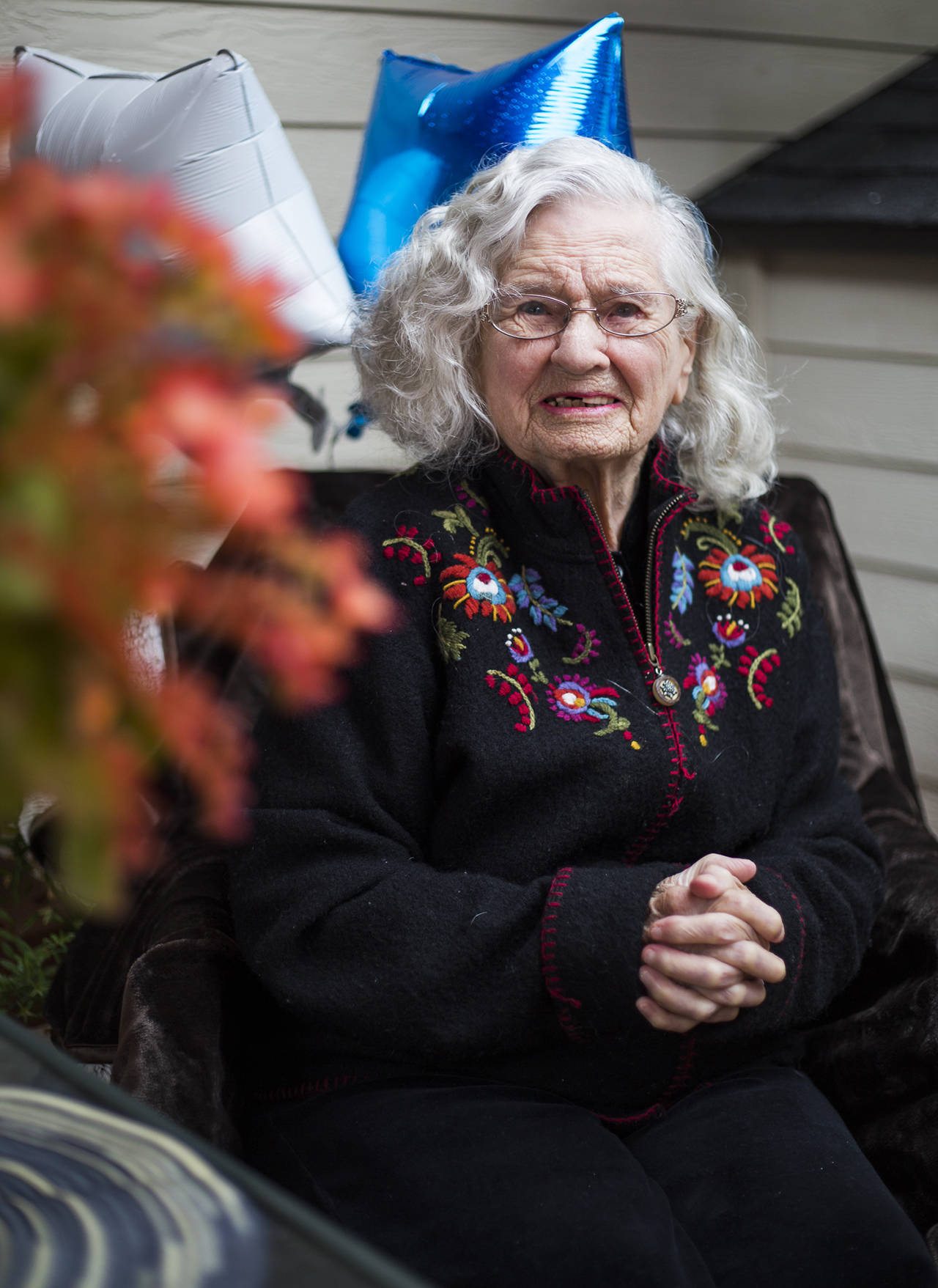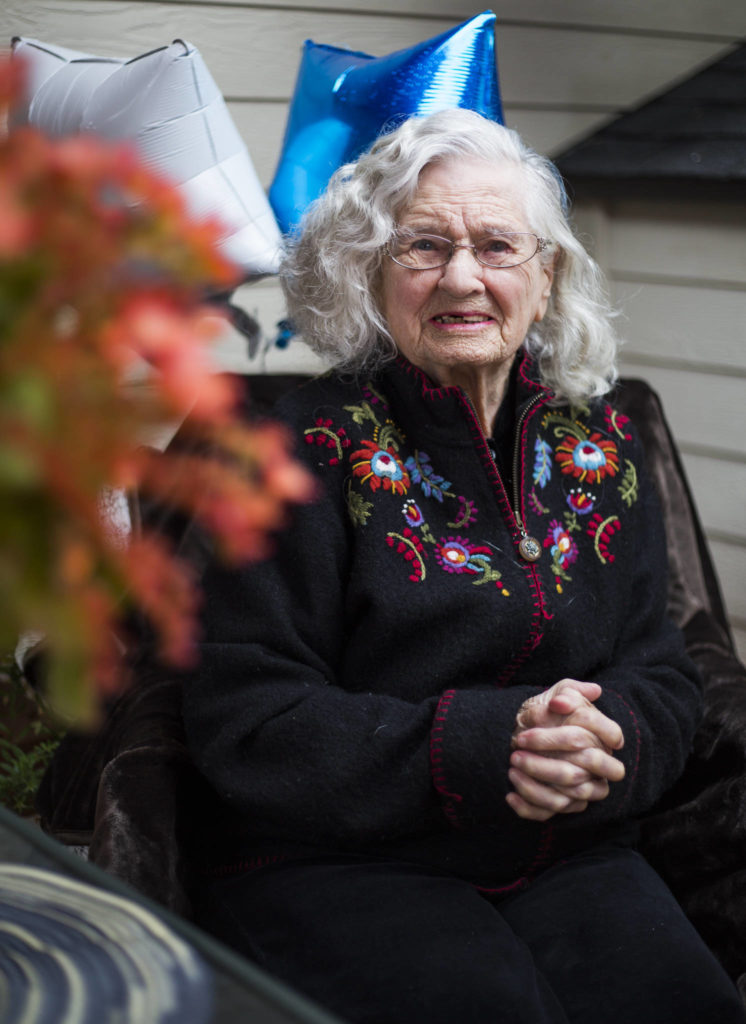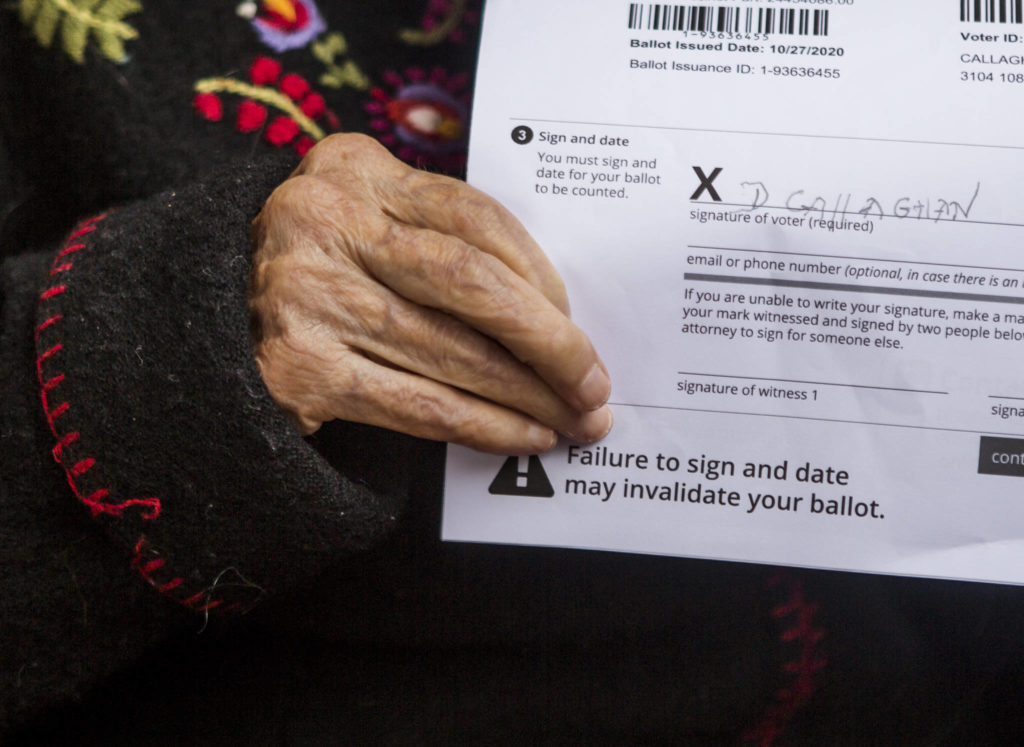MUKILTEO —Doris Callaghan has been voting for a president since Joe Biden was a toddler and Donald Trump was just a twinkle in his father’s eye.
She has been hooked ever since.
What’s up with that?
Callaghan, 100, and her five slightly younger roomies at Mukilteo Sunset Adult Family Home plan to stay up late on election night to watch the results. By late, that means 8 p.m. They usually turn in after dinner, around 7 p.m.
Tonight they’re having an election party with a special dinner of delivery pizza and hot wings. Beer requires a doctor’s order.
Older people typically are the top turnout of any age group. According to the U.S. Census Bureau, nationally about 66% of those age 65 and older voted in the November 2018 election, compared to 36% in the 18 to 29 bracket. About half of those 30 to 44 voted.
Figures for all groups are expected to increase this year. As of Monday, more than 95 million early votes had already been cast nationwide. In Washington, about 3.3 million ballots had been returned as of Saturday, or 67.6%. In Snohomish County, 345,433 ballots, or 68.8%, had been received.
“Voting is something that is very important in everybody’s life,” Callaghan said. “It’s important what you’re voting for or against.”
Callaghan was worried she would not be able to vote this year when her ballot hadn’t arrived last week. Others in the home got theirs. She asked her caregiver: “Why don’t I have my ballot?”
“She was upset,” said her granddaughter, Amy Malick, who lives in California. “She said, ‘If I can’t vote, who am I?’”
Turns out Callaghan’s voter registration address wasn’t changed when she moved from Everett, where she lived for some 30 years, to the Mukilteo care home.
“We realized we needed to figure it out,” Malick said. “I called the state number on the website and they talked me through the process of getting a replacement ballot, which was really easy. The nursing facility printed it out. We got it all set up.”
Facility owner Sheilah Mbatai made sure the ballot was mailed Friday.
“She was so excited. She knew who she wanted to vote for,” Mbatai said. “She filled in the circles herself.”
Mbatai said residents have been keeping up with this election.
“They have been watching the debates and talking about it,” she said. “They know what’s going on. They know what they like and don’t like. They mainly say this election will make a difference, more than any other they’ve been through.”
COVID-19 is the main issue.
“That’s the one they talk about,” Mbatai said. “They wonder why nothing is being done to eliminate the disease so they can see their family members. They can only see them through the window or Zoom or FaceTime.”
Since March, the only time residents have gotten out is to go to the doctor.
Callaghan’s family planned to have a big shindig for her when she turned 100 last July. She was born in 1920, the year women were granted the right to vote. The first presidential election in which she was eligible to vote was in 1944, when Franklin D. Roosevelt was up for re-election against Thomas Dewey. That was years before the voting age was lowered from 21 to 18.
Some presidents stand out more than others.
“My favorite was Kennedy,” Callaghan said. “He was considerate of everyone. Everything he liked, I liked.”
Andrea Brown: abrown@heraldnet.com; 425-339-3443. Twitter @reporterbrown.
Talk to us
> Give us your news tips.
> Send us a letter to the editor.
> More Herald contact information.



























